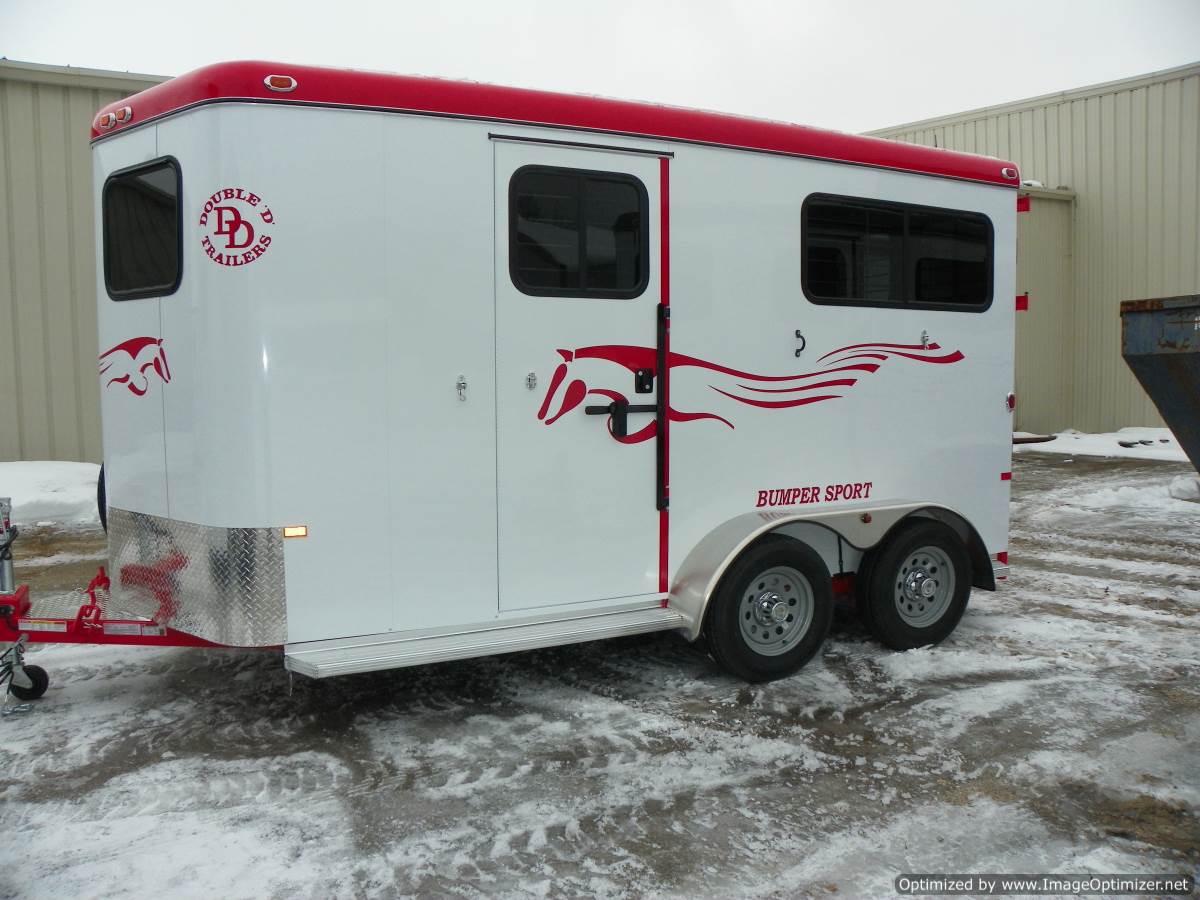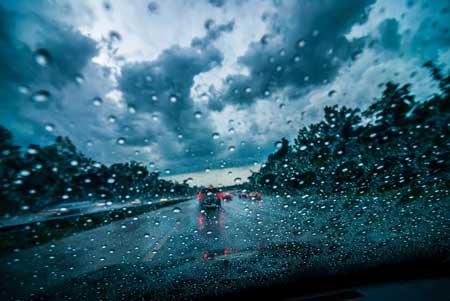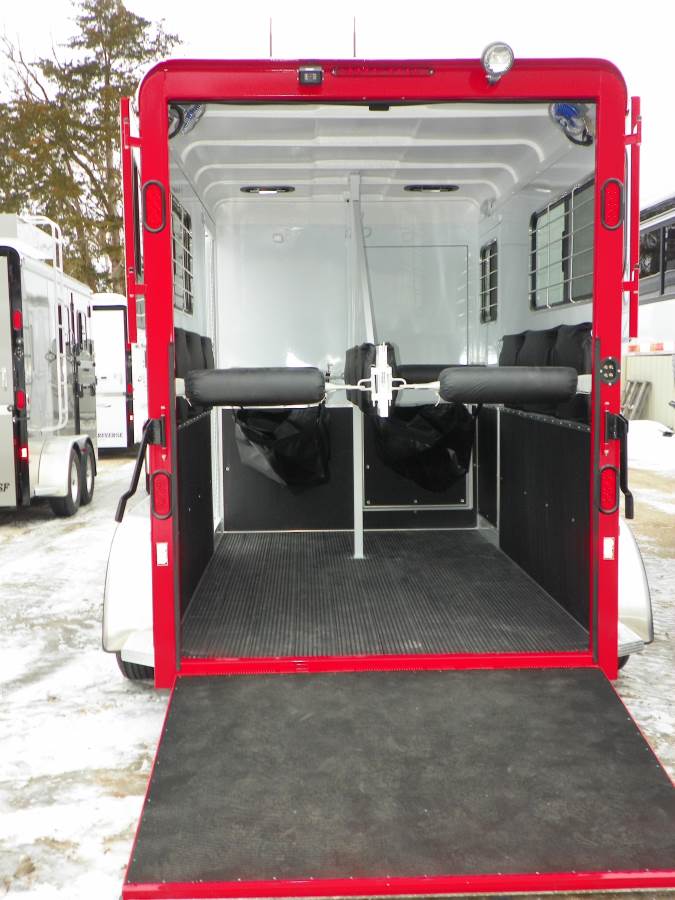“Baby, It’s Cold Outside… But I Still Want to Use My Horse Trailer!”

For many of us, this means freezing temperatures, hot mugs of cocoa, and fuzzy horses snug out in the barn. But there’s no reason winter can’t also be a great time to enjoy traveling with your trailer.
Maybe you’re planning to drive south for the season to train. Perhaps you like to use quiet winter weekends to meet up with friends for trail rides. Or, maybe you just have practical needs like vet appointments or lessons at a nearby stable.
Regardless, there are a few things you should keep in mind when using your horse trailer in the winter. Some of these have to do with safety and some with comfort. Read on to find our top tips for safe trailer use when the weather is cold!
1. Don’t let frozen pipes burst your bubble.
A living quarter horse trailer can be a huge convenience if you need to stay warm on a chilly winter day. But don’t let your plumbing become an issue when the temperatures drop at night. A frozen or burst water line can turn a relaxing trip into a headache faster than you can say “snowman!”
Many winter-use RV campers will have insulated pipes to keep the water temperatures above freezing. In a Double D Trailer, most of the plumbing can avoid this by simply being stored “above floor.” The interior of the trailer is insulated. So, by default, any water lines in the main cabin of the living quarters are kept warmer as well.
The only water systems we might have below the floor are the holding tanks. Brad Heath, owner of Double D Trailers has this to say, “If the inside temperature remains above freezing, it isn’t a problem. So, just turn on your heat.”
We do build trailers with fresh water tanks above the floor, but always ask the client of their preference. Most people prefer to have the tanks below the floor because it frees up some extra storage space under the sofa, bench seat, or dinette.
Plus, any crack or tank leaks let water run onto the ground rather than pooling on the inside of your living quarters. Our best advice is to use your trailer regularly to in the winter to keep things flowing and warm.
If you decide not to use it for a long stretch of time in the colder months, have the trailer winterized so the pipes don’t freeze.
2. Stay toasty warm with a furnace.
When it comes to a heating system, our models come standard with roof air from a heating strip. These heat strips are electric and function in the same manner as your hair dryer. Electricity makes a metal strip hot and, as air passes over, it heats the air.
These systems are a bit slow to warm a room, but once the temperature gets to the desired level, they do a decent job of keeping the space warm.

In that case, we offer a 16,000 BTU furnace which operates from propane. It’s an actual flame and will heat up an interior pretty quickly. If you are cold weather camping, or you don’t have access to power for a heater strip, then a furnace is your best bet to stay toasty warm.
3. Use caution when driving.
In general, driving a horse trailer in bad weather is never our recommendation – especially when ice is involved. That said, there are times when the weather takes a turn for the worse or you suddenly find yourself lost with bad weather rolling in.
In that case, use extreme caution when driving in bad conditions. Controlling a vehicle on ice is next to impossible, but controlling on ice while towing is even more dangerous. If you have poor visibility from rain or snow, definitely run at a lower speed. It’s better to arrive at your destination later than expected, than to not arrive at all due to an accident.
Before you set out for a winter drive, double check the pressure in your tires. When temperatures drop, the air molecules inside your tires take up less space, so you may need to add some air to maintain a good tire pressure.
4. Join a roadside assistance program.
It’s a great idea to give yourself a backup in case you find yourself in a pickle. That’s why we recommend roadside assistance from a company like Trail Guard. It doesn’t matter if it’s a flat tire, stuck trailer, or broken hitch… they can meet you alongside the road and help move you and your horses to safety.

We’ve partnered with Trail Guard. Right now you can purchase a 1-year membership along with your trailer. We’ll take care of the entire sign-up process so you have one less thing to worry about with the buying process.
5. Keep your horse warm while traveling.
If the temperatures are cold enough – or if your horse doesn’t have a natural winter coat, you may want to put a blanket on them for transport. Just be sure to check on your horse often to make sure he’s not too warm. A horse who is sweating underneath a blanket could easily become chilled in the cold weather.
Keep your windows and vents closed and make sure the fans are not running on cold days. Definitely don’t transport your horses in an open-sided stock trailer during the winter… brr!!
6. Winterize your trailer when it’s not in use.
If you’re not planning to use your trailer at all over the colder months, consider winterizing the entire trailer. This means you take it to a maintenance shop where they would empty out all the storage tanks, drain the water lines, and add antifreeze so your pipes stay nice over the winter. Have a professional help you with this step.
Then, once back at the farm, we recommend you buy a horse trailer cover for $200-300 to protect the paint from weather. Or, better yet, store your trailer indoors. This way the trailer’s tires, paint, and other rubber fixtures are away from the damaging effects of the sun.
All of these elements deteriorate from the sunlight, rain, and the elements, so the more your trailer isn’t exposed, the longer it will last.
If you have any additional questions about using a horse trailer in the winter, don’t hesitate to contact Brad. He’d be happy to help.

